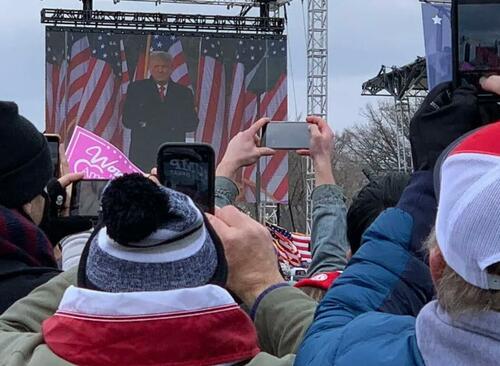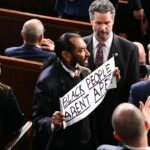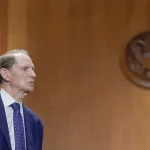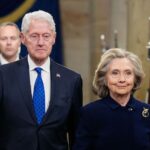
For months, we have been discussing the heavy-handed, one-sided approach of the J6 Committee in the presentation of evidence and witnesses.
Both sides blame each other for the absence of a single Republican-selected member. Yet, the Committee treated the lack of balance as a license to present a rigid and scripted account of events and actions, including editing out countervailing views or evidence. For those of us who welcomed the greater transparency on the events of that terrible day, it was a lost opportunity to have a truly historic investigation akin to Watergate or the Kennedy assassination.
The result is now evident and unsurprising.
A Monmouth University poll shows that almost 90 percent of respondents report that the hearings have made no change in how they view the J6 riot.
Moreover, despite the overwhelming cooperation and support of the media with the Committee, the vast majority believe that the J6 Committee was a political rather than investigative exercise, focused on opposing Trump rather than disclosing the facts of January 6th.
Respondents were asked “Have the recent House January 6 Committee hearings changed your mind about what happened at the Capitol that day or who is responsible, or have the hearings not changed your mind?” Only eight percent answered in the affirmative while 89 percent said it made no change at all in their views.
What was really striking was the response to a prompt stating “Some say that the Jan. 6 committee’s main aim is to ensure President Trump can’t run in 2024.” Sixty percent agreed with that statement, including 62 percent of Democrats and 70 percent of Republicans. That view was reinforced by the baffling decision of Chairman Thompson, Vice Chair Cheney and other members to repeatedly end hearings with calls to oppose Trump in the coming election. It was hardly subtle.
The lack of impact of the hearings is, in my opinion, due to two threshold decisions of the Democrats.
First, Speaker Nancy Pelosi and others decided that the Committee would focus on reinforcing “a narrative” rather than follow prior investigatory commissions with an open and balanced inquiry.
After bringing in a television producer, the hearings showed members reading off teleprompters and witnesses confined in limited roles of reaffirming what members were declaring about the riot. There was no effort to present alternative interpretations or viewpoints. It played into criticism of a “show trial” environment–an image that was magnified by Cheney declaring in the last hearing that Trump family and associates had come forward to “confess” and encouraging others to do the same.
Many of us supported the effort to bring greater transparency to what occurred on Jan. 6th and these hearings have offered a great deal of important new information. Indeed, it has proven gut-wrenching in the accounts of lawyers and staff trying to combat baseless theories and to protect the constitutional process.
Yet, the heavy-handed approach to framing the evidence has been both unnecessary and at times counterproductive. The strength of some of this evidence would not have been diminished by a more balanced committee or investigation. The unquestioning media coverage likely added to the feeling of many that these hearings lacked objective analysis and full accounts of what occurred, including the exclusion of any discussion of why the Capitol was left poorly protected on that day despite prior warnings of potential violence.
Second, the Committee over promised the public. At the start of the hearings, committee members promised they had the long-sought smoking-gun evidence — new material that would close the circle on Trump. Committee member Rep. Adam Schiff (D-Calif.) indicated he thought there was now “credible evidence” to support a variety of criminal charges. His colleague, Rep. Jamie Raskin (D-Md.), said the committee would show that Trump organized a “coup” on Jan. 6, 2021. That framing has led to glaring omissions. The Committee has routinely edited videotapes and crafted presentations to eliminate alternative explanations or opposing viewpoints like repeatedly editing out Trump telling his supporters to go to the Capitol peacefully.
Offering a more balanced account, including allowing the Republicans to appoint their own members (in accordance with long-standing tradition), would not have lessened much of the dramatic testimony. Yet, allowing Republicans to pick their members (yes, including Rep. Jim Jordan) would have prevented allegations of a highly choreographed show trial. It would have added credibility to the process. Indeed, much of this evidence would have been hard to refute like the deposition of former Attorney General Bill Barr on the election fraud allegations.
Once again, this Committee could have been transformative for opinions on the riot. Instead, it was another Pelosi signature muscle play. As a witness in the first Trump impeachment, I was highly critical of her insistence that the House would impeach before Christmas rather than conduct the traditional impeachment investigation with witnesses. Instead of building a more convincing case, Pelosi preferred to impeach with virtually no record, for a certain defeat in the Senate. In the second impeachment, she went one better: She held no hearing at all and pushed through what I called the first “snap impeachment.”
The Jan. 6 committee was similarly stripped of any pretense. It was as subtle a political move as Pelosi’s ripping up President Trump’s State of the Union speech. Thus, it was not surprising that, when asked what she hoped to achieve from the committee, Pelosi tellingly referred to it as a “narrative.” It is the difference between seeing and simulating justice.
The results in polling are no less predictable. Presented with one-sided, tightly choreographed hearings, most citizens were left precisely where they began. The hearings were meant to enrage the base rather than add allies. It may have succeeded in that limited objective, but it could have been so much more.
Here is the poll: Monmouth University J6 Poll
For months, we have been discussing the heavy-handed, one-sided approach of the J6 Committee in the presentation of evidence and witnesses.
Both sides blame each other for the absence of a single Republican-selected member. Yet, the Committee treated the lack of balance as a license to present a rigid and scripted account of events and actions, including editing out countervailing views or evidence. For those of us who welcomed the greater transparency on the events of that terrible day, it was a lost opportunity to have a truly historic investigation akin to Watergate or the Kennedy assassination.
The result is now evident and unsurprising.
A Monmouth University poll shows that almost 90 percent of respondents report that the hearings have made no change in how they view the J6 riot.
Moreover, despite the overwhelming cooperation and support of the media with the Committee, the vast majority believe that the J6 Committee was a political rather than investigative exercise, focused on opposing Trump rather than disclosing the facts of January 6th.
Respondents were asked “Have the recent House January 6 Committee hearings changed your mind about what happened at the Capitol that day or who is responsible, or have the hearings not changed your mind?” Only eight percent answered in the affirmative while 89 percent said it made no change at all in their views.
What was really striking was the response to a prompt stating “Some say that the Jan. 6 committee’s main aim is to ensure President Trump can’t run in 2024.” Sixty percent agreed with that statement, including 62 percent of Democrats and 70 percent of Republicans. That view was reinforced by the baffling decision of Chairman Thompson, Vice Chair Cheney and other members to repeatedly end hearings with calls to oppose Trump in the coming election. It was hardly subtle.
The lack of impact of the hearings is, in my opinion, due to two threshold decisions of the Democrats.
First, Speaker Nancy Pelosi and others decided that the Committee would focus on reinforcing “a narrative” rather than follow prior investigatory commissions with an open and balanced inquiry.
After bringing in a television producer, the hearings showed members reading off teleprompters and witnesses confined in limited roles of reaffirming what members were declaring about the riot. There was no effort to present alternative interpretations or viewpoints. It played into criticism of a “show trial” environment–an image that was magnified by Cheney declaring in the last hearing that Trump family and associates had come forward to “confess” and encouraging others to do the same.
Many of us supported the effort to bring greater transparency to what occurred on Jan. 6th and these hearings have offered a great deal of important new information. Indeed, it has proven gut-wrenching in the accounts of lawyers and staff trying to combat baseless theories and to protect the constitutional process.
Yet, the heavy-handed approach to framing the evidence has been both unnecessary and at times counterproductive. The strength of some of this evidence would not have been diminished by a more balanced committee or investigation. The unquestioning media coverage likely added to the feeling of many that these hearings lacked objective analysis and full accounts of what occurred, including the exclusion of any discussion of why the Capitol was left poorly protected on that day despite prior warnings of potential violence.
Second, the Committee over promised the public. At the start of the hearings, committee members promised they had the long-sought smoking-gun evidence — new material that would close the circle on Trump. Committee member Rep. Adam Schiff (D-Calif.) indicated he thought there was now “credible evidence” to support a variety of criminal charges. His colleague, Rep. Jamie Raskin (D-Md.), said the committee would show that Trump organized a “coup” on Jan. 6, 2021. That framing has led to glaring omissions. The Committee has routinely edited videotapes and crafted presentations to eliminate alternative explanations or opposing viewpoints like repeatedly editing out Trump telling his supporters to go to the Capitol peacefully.
Offering a more balanced account, including allowing the Republicans to appoint their own members (in accordance with long-standing tradition), would not have lessened much of the dramatic testimony. Yet, allowing Republicans to pick their members (yes, including Rep. Jim Jordan) would have prevented allegations of a highly choreographed show trial. It would have added credibility to the process. Indeed, much of this evidence would have been hard to refute like the deposition of former Attorney General Bill Barr on the election fraud allegations.
Once again, this Committee could have been transformative for opinions on the riot. Instead, it was another Pelosi signature muscle play. As a witness in the first Trump impeachment, I was highly critical of her insistence that the House would impeach before Christmas rather than conduct the traditional impeachment investigation with witnesses. Instead of building a more convincing case, Pelosi preferred to impeach with virtually no record, for a certain defeat in the Senate. In the second impeachment, she went one better: She held no hearing at all and pushed through what I called the first “snap impeachment.”
The Jan. 6 committee was similarly stripped of any pretense. It was as subtle a political move as Pelosi’s ripping up President Trump’s State of the Union speech. Thus, it was not surprising that, when asked what she hoped to achieve from the committee, Pelosi tellingly referred to it as a “narrative.” It is the difference between seeing and simulating justice.
The results in polling are no less predictable. Presented with one-sided, tightly choreographed hearings, most citizens were left precisely where they began. The hearings were meant to enrage the base rather than add allies. It may have succeeded in that limited objective, but it could have been so much more.
Here is the poll: Monmouth University J6 Poll







